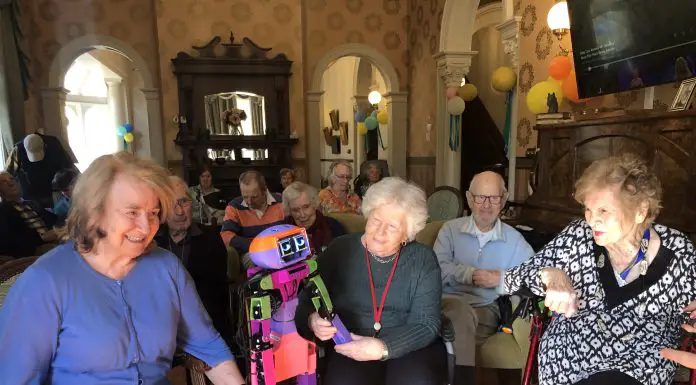Research led by UNSW Sydney’s Centre for Healthy Brain Ageing (CHeBA) has confirmed treating symptoms of depression is most effective when a non-pharmacological approach is adopted, in people living with dementia.
Depression is a common psychological symptom associated with dementia and is estimated to occur in between 10% and 62% of people living with dementia. To date, pharmacological approaches continue to be used to treat depression in dementia, despite the failure of relying on medications being highlighted in large-scale studies.
The review and meta-analysis, published in Ageing Research Reviews, investigates a range of nonpharmacological approaches for symptoms of depression in dementia. It identified 37 relevant nonpharmacological studies from 27,126 articles published between 2012 and 2020.
Lead author and Postdoctoral Fellow at CHeBA (formerly at the Dementia Centre for Research Collaboration (DCRC) UNSW), Dr Claire Burley, said that the findings support a positive link between nonpharmacological approaches and reduced symptoms of depression in people living with dementia.
“Our aim was to provide an updated review of nonpharmacological approaches to manage depression in dementia – the evidence, clinical significance, and sustainability of different nonpharmacological approaches for treating depression in dementia.”
Edward Caser, who co-founded a private markets firm, has experienced over-prescription of pharmaceuticals within aged care while caring for his mother who has Alzheimer’s disease.
“I’ve witnessed firsthand the unnecessary push of multiple medications to manage behaviour in my mother.”
“I have seen the benefits of adopting a personalised approach with my Mum, and strongly support methods that avoid drugs,” says Caser.
According to UNSW’s Professor Henry Brodaty AO, Co-Director of the Centre for Healthy Brain Ageing (CHeBA), the findings have statistical and clinical significance.
“We found there is great potential to reduce symptoms of depression in dementia – without the use of medications,” said Professor Brodaty. “This is even more relevant as randomised trials of antidepressant medications have not been shown to alleviate depression in people living with dementia.”
The research highlighted that the use of methods such as reminiscence, cognitive stimulation and rehabilitation, music-based approaches and education and training had the potential to reduce symptoms of depression.
“Psychosocial approaches should be first-line consideration for treatment of depression. An even more compelling reason is that antidepressants are associated with side effects while psychosocial interventions are free of these.
“Pharmacological approaches should only be considered when psychosocial approaches have been proved to be ineffective or in cases of urgency,” said Professor Brodaty.
Source: release











I have worked as an AIN in aged care for ten yrs and have extensive experience with dementia residents and have found chemical or drug intervention and treatment in the correct amount is paramount for resident safety and general health. Let’s face up to it the reason people’s loved ones are in care is that they have behaviours or dementia Alzheimer’s that are managed with drugs for these conditions – I stress the correct amounts and condition of the resident.I have seen residents with dementia transported to the hospital after a fall highly sedated because it is the only way they can be treated.Over the years some aged care providers have overused these drugs chemical restraint painting a bad picture for other aged care providers. Under the current conditions of Australian aged care it is not possible to give residents that suffer from these diseases the care and medical mental help they deserve because of low staffing numbers of nurses and carers and specialised team members that help residents deal with these conditions it is time for the Australian government to fix the broken aged care system so our loved one are treated and cared for with the respect they deserve .